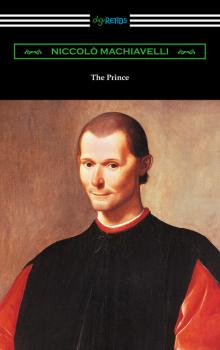Niccolò Machiavelli
Список книг автора Niccolò MachiavelliDiscourses on Livy (Translated by Ninian Hill Thomson)
“Discourses on Livy”, which was first published posthumously in 1531, is Niccolo Machiavelli’s analysis of the first ten books of Livy’s monumental work of Roman History, which details the expansion of Rome through the end of the Third Samnite War in 293 BC. Machiavelli believed that by examining the exemplary greatness in Roman history, practical lessons could be applied to the politics of the present day. The Italian renaissance was causing people to look back to the ancients as examples of greatness in the fields of art, law, and medicine. Driven by a motivation to do the same for the field of politics, Machiavelli undertook an examination of the structure and benefit of government in ancient times. “Discourses on Livy” are comprised of three books. In the first book Machiavelli discusses the internal structure of a republic. In the second book he discusses matters of warfare and in the third his attention is turned to matters of individual leadership. An important work of political history and philosophy, “Discourses on Livy” is a must read for any student of political science. This edition follows the translation of Ninian Hill Thomson and includes a biographical afterword.
Discourses on Livy
The strategies Machiavelli developed and endorsed in The Prince made his name an enduring synonym for the ruthless acquisition and use of power. Discourses on Livy, published in 1531, is equally essential to an understanding of political theory. Both treatises compare the government of ancient Rome to that of the Italian Renaissance. The Prince, however, offers advice on maintaining a monarchy; with Discourses, Machiavelli considers the structure and benefits of a republic.Inspired by Titus Livy's monumental history of Rome, Machiavelli discusses the internal structure of a republic, methods of conducting warfare, and the defining qualities of individual leadership. His explorations of the concept of checks and balances, the strength of a tripartite structure, and the superiority of a republic to a principality keep this book as relevant today as it was five centuries ago.
The Prince
As a young Florentine envoy to the courts of France and the Italian principalities, Niccolò Machiavelli (1469–1527) was able to observe firsthand the lives of people strongly united under one powerful ruler. His fascination with that political rarity and his intense desire to see the Medici family assume a similar role in Italy provided the foundation for his «primer for princes.» In this classic guide to acquiring and maintaining political power, Machiavelli used a rational approach to advise prospective rulers, developing logical arguments and alternatives for a number of potential problems, among them governing hereditary monarchies, dealing with colonies and the treatment of conquered peoples. Refreshing in its directness, yet often disturbing in its cold practicality, The Prince sets down a frighteningly pragmatic formula for political fortune. Starkly relevant to the political upheavals of the 20th century, this calculating prescription for power remains today, nearly 500 years after it was written, a timely and startling lesson in the practice of autocratic rule that continues to be much read and studied by students, scholars and general readers as well.
4 Books by Niccolo Machiavelli
4 Books by Niccolo Machiavelli<br><br>THE ART OF WAR<br>NICHOLAS MACHIAVEL'S PRINCE<br>DISCOURSES ON THE FIRST DECADE OF<br>HISTORY OF FLORENCE AND OF THE AFFAIRS OF ITALY
The Prince (Translated by Ninian Hill Thomson with an Introduction by Henry Cust)
Originally published in 1532, nearly five years after the author’s death, “The Prince” is a pioneering work of modern political philosophy for which Niccolo Machiavelli is best remembered. Intended to be a treatise on ruling for princes, “The Prince” is one of the world’s first and most impactful works of political science. In the book Machiavelli offers many bits of practical advice on how to rule and even though the book was written in the early 16th century the ideas are still very relevant today. Where “The Prince” differs from other political literature is in its separation of the lofty idealism of morality and ethics from the practical demands of governing. It is this very aspect of Machiavelli’s work that has made his name synonymous with an almost immoral opportunism. It has been argued that Machiavelli himself was not quite as devious in reality as his work would suggest but that he takes up this style in his work in order to present a provocative treatise that recognizes the pragmatic demands of governance. The impact on Western civilization of Machiavelli’s work cannot be overstated, and in “The Prince” we find a concise exposition of his political philosophy. This edition follows the translation of Ninian Hill Thomson, includes an introduction by Henry Cust, and a biographical afterword.
The Prince
Written in the 16th century, The Prince remains one of the most influential books on political theory. Its author, Niccolo Machiavelli was an Italian diplomat and political theorist, and is considered the father of modern political thought.
The Collected Works of Niccolò Machiavelli
This comprehensive eBook presents the complete works or all the significant works – the Œuvre – of this famous and brilliant writer in one ebook – easy-to-read and easy-to-navigate: • The Prince • Machiavelli • History of Florence and of the Affairs of Italy • Discourses on the First Decade of Titus Livius









